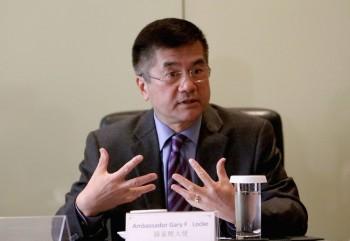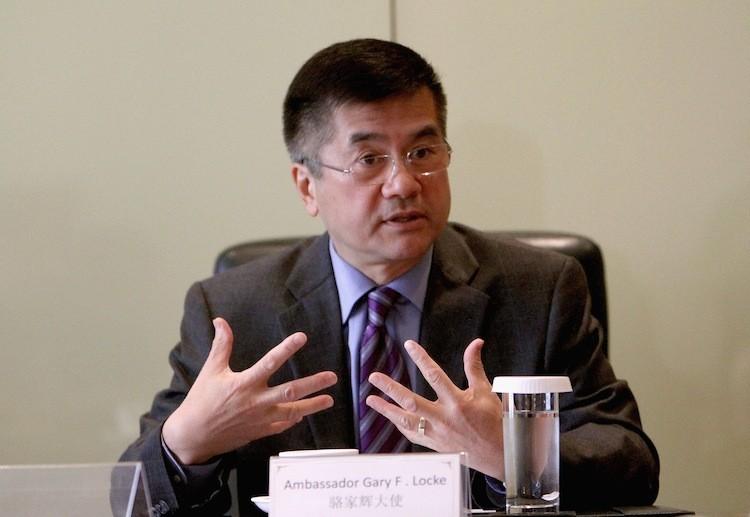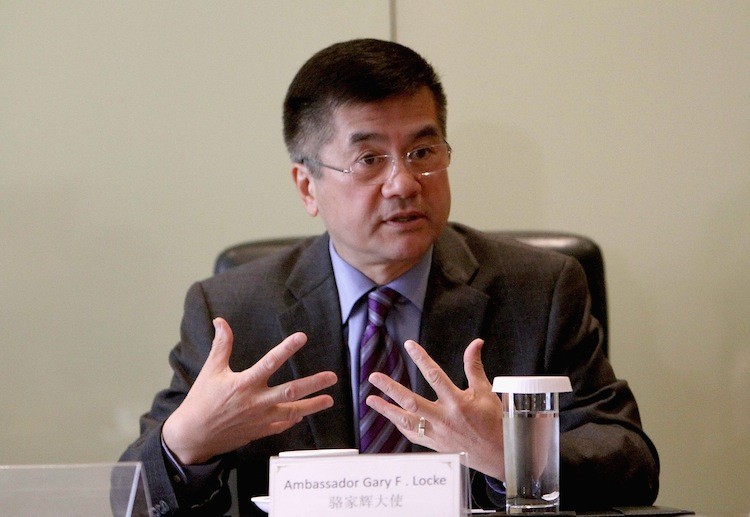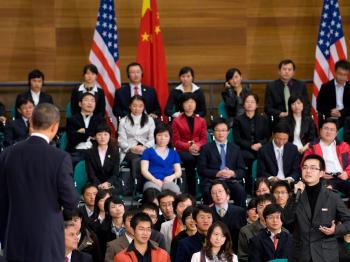Opinion
Chinese Media Flip-Flops on US Ambassador Locke
The Chinese media can’t seem to make up its mind about U.S. Ambassador Gary Locke.

U.S. Ambassador to China Gary Locke talks to the media at a press conference ahead of the 2011 Summer Davos Forum at Furama Hotel on September 13, in Dalian, Liaoning Province of China. ChinaFotoPress/Getty Images
|Updated:



